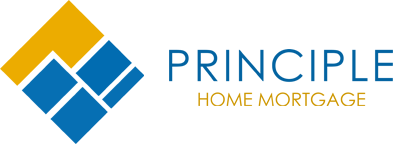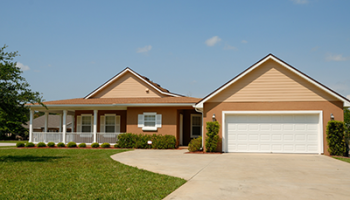What Mortgage Is Right For Me?
What Mortgage Is Right For Me?
When searching for the best Williamsport or Lycoming County home to purchase, you may need to get the right mortgage to assist in buying the house. The decision in selecting the right mortgage for you, will come down to the strength of your finances and the amount you need to borrow.
Shane Whitteker is the owner and chief broker at Williamsport mortgage broker Principle Home Mortgage. To get a better understanding of the different types of mortgages available, we discussed the options with Whitteker.
Types Of Mortgages
There are several types of mortgages you can select from. They include:
FHA Loans
The FHA (Federal Housing Administration) is a type of government-insured loan. When one defaults on mortgage payments, the agency pays the lender back or compensates. This arrangement makes it more accessible for people looking for mortgages and less risky for the lender.
FHA loans are mortgages backed by the FHA. An individual can access an FHA mortgage with a down payment of 3.5% as long as they have a credit score of 580 or higher. Many lenders prefer a debt-to-income ratio of at least 43% and below.
With a Federal Housing Administration mortgage, your mortgage insurance may be more than a conventional loan.
“The only drawback of an FHA loan in my opinion are the mortgage insurance costs,” Whitteker says. “You will pay a one-time up front mortgage insurance fee which is currently set at 1.75% of the loan amount. This fee is allowed to be financed so it does not actually increase your out-of-pocket expense when purchasing a home.”
According to Whitteker, you'll pay more on this type of loan for mortgage insurance.
“The monthly mortgage insurance is typically on the higher side compared to conventional and if your loan to value exceeds 90%, you will pay this insurance for the life of the loan,” Whitteker notes.
Don’t despair – Whitteker says there is a silver lining.
“Two things make this more palatable,” Whitteker explains. “Rates on FHA tend to be at least a half of a percentage point lower for FHA compared to conventional, and the monthly mortgage insurance amount is re-assessed based on the principle amount owed once per year. This means that your mortgage insurance that is paid monthly decreases every 12 months.”
VA Home Loans
The VA loan (United States Department of Veteran Affairs) is one of the government-insured loans. VA loans are mortgages backed by the Department of Veteran Affairs. This mortgage is for military families only. They have lower interest rates compared to conforming mortgages, and one does not need a down payment.
To qualify for a VA loan, you must have a qualifying credit history but there is not specific minimum credit score set by the VA. If the applicant meets the automated underwriting threshold, debt to income ratios can be as high as 58%. An individual will pay a funding fee but won’t pay for mortgage insurance. The funding fee is 2.3% of the loan borrowed for first-time applicants and 3.6% of the amount for people who have borrowed a VA loan before. However, your funding fee will be lower if you have down payment money. If you are doing a cash out refinance the funding fee is 2.3% of the loan amount for first time, use and 3.6% of the loan amount for subsequent use. These numbers are set regardless of loan to value.
Whitteker says the eligibility requirements to apply for a VA loan are pretty straightforward.
“In general, if you served for enough time or were on active duty with an honorable discharge you will likely qualify under the VA eligibility requirements,” Whitteker explains.
That sets you up to apply, but what do you need in order to successfully get the VA loan?
“Being eligible has nothing to do with underwriting requirements,” Whitteker says. “You still will need to meet the requirements set by the VA for things like debt-to-income ratio, credit history, and disposable income.”
Conventional Loan
Conventional mortgages are ideal for borrowers with a good credit score. They are usually not backed by the government. A conventional loan is in two types:
Conforming loans
These loans conform to the FHFA’s (Federal Housing Finance Agency) standards. The standards set include debt, credit, and loan size. As of 2022, the loan limit in most areas is 647,200 dollars; in the most expensive areas, it is 970,800 dollars.
Non-conforming loans
This type of loan does not conform to the FHFA standards. Non-conforming loans are for larger homes, borrowers who have faced severe financial catastrophes like bankruptcy, or those with subpar credit.
Construction Loan
According to Whitteker, construction loans are a specially built mortgage product for people who are constructing a new home.
“A construction loan is designed to facilitate the construction of a home with mortgage financing,” Whitteker explains. “Principle Home Mortgage offers construction loans for all agency mortgage types. This includes FHA, VA, USDA Rural Housing, and conventional financing.”
What is a one-time close construction loan?
“The one time close (OTC) construction loan is a great way to finance the construction of your home without having to close on two mortgages,” Whitteker says. “The terms are fairly attractive as well.”
USDA Loans
The United States Department of Agriculture (USDA) is a variety of government-insured loans. USDA loans are government mortgages backed by the USDA. This mortgage is for middle-income and low-income families who want to buy homes in suburban and rural areas. The qualifying income limit varies depending on the part of America where you live. The population restrictions are 35,000 for some counties and 20,000 for others.
According to Whitteker, this type of home loan is more widely available than just a few years ago.
“In general the geographic restrictions restrict the use of these mortgage loans in urban areas. The USDA expanded availability geographically a few years ago which really opened up the areas that qualify for this type of financing,” Whitteker says.
For USDA loans, the borrower has to pay mortgage insurance. However, the mortgage insurance should be lower than what you would have paid for FHA mortgage insurance or PMI. There can also be extra charges such as an upfront fee of 1 % of the total loan amount.
Interest only mortgages
Whitteker explains that an interest only mortgage is a mortgage where you do not pay principle on a monthly basis. This type of loan is generally used for lines of credit.
“Your minimum payment is set at the amount of interest that is due each month. These types of mortgages are more common on home equity lines of credit,” Whitteker says. “You don’t see these types of loans offered as a first mortgage product all that often. The down side for a mortgage like this is that you only pay interest if making your minimum payment. So, your principle balance does not decrease when you are making your minimum payment.”
Reverse Mortgages
Reverse mortgages are for people who are 62 years and above. Compared to the other types of mortgages listed above, reverse mortgages are usually not the first mortgage a person takes on their home. A reverse mortgage is for individuals who have built equity in their houses since they first bought them and, in most likelihood, had already paid off the mortgage.
This type of mortgage can be used to purchase a home or to refinance a home. If a reverse mortgage is used to purchase a home the down payment is typically higher than you would see with a conventional mortgage and is set based on the age of the youngest applicant. The benefit is that if you use a reverse mortgage to purchase a home, there is not monthly mortgage payment on the home. On any reverse mortgage the balance increases over time because there is no monthly mortgage payment being made.
Eventually, when the home is sold, whether the owner of the house is dead or alive, the proceeds will move to the lender, who will pay off the reverse mortgage’s debt. Any extra money from the home sale will be given to the homeowner if they are alive, and if they are dead, it will go to their estate. In case your heirs wish to keep the home, they can choose to pay the reverse mortgages on their own.
Reverse mortgages or home equity conversion mortgages (HECM) are not for everyone, but for some they can provide a way to tap the equity in their homes without needing to leave.
“While this type of mortgage is legitimate, you do need to make sure you know what you are getting into,” Whitteker advises. “It is very important to discuss all of your options with a mortgage professional and a HECM counselor in order to make a proper decision on moving forward with this type of mortgage.”
There are many Williamsport mortgage brokers, but if you’d like to learn more about the different mortgage types available to you, contact Williamsport’s mortgage broker Principle Home Mortgage at (570) 980-9359.
VA Home Loans In Williamsport: A Primer
If you're looking for a Williamsport VA home loan, this article will give you a solid foundation. VA home loans - in Williamsport or anywhere else in Pennsylvania - are one of the best ways to obtain a home mortgage.
Step-By-Step Guide to Being a First Time Home Buyer
As a first time home buyer, you'll have a lot of questions. Check out our Williamsport First Time Home Buyer Guide for answers.
First Time Williamsport Home Buyer Mortgage Tips: The Inside Scoop
If you're considering buying a home in Williamsport - or anywhere else in Pennsylvania, you're guaranteed to learn something new in this informative guide.




